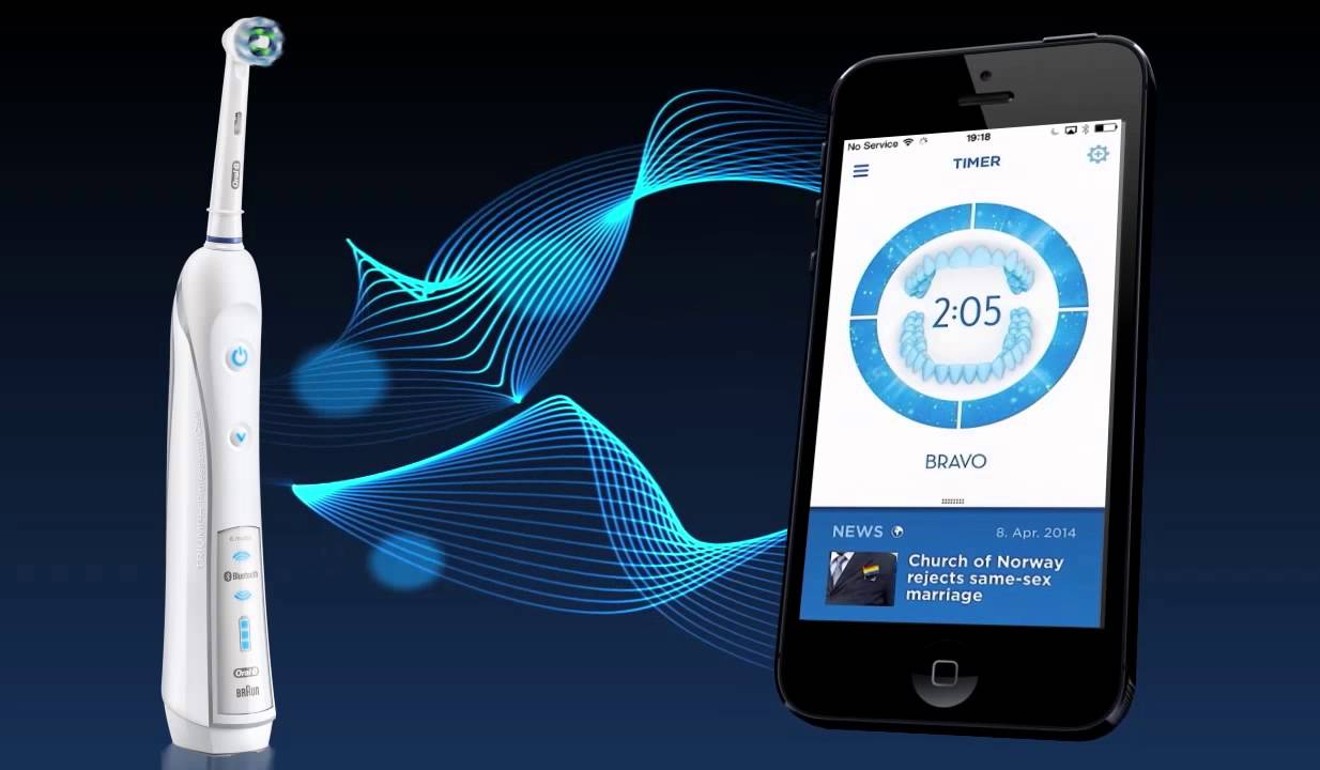
Procter & Gamble refocuses China strategy on ‘premiumisation’... and the US$114 Bluetooth toothbrush
US consumer staples giant says it is making headway in China with a focus on premium brands, after conceding in 2015 it had failed to anticipate the rise of the ‘discerning’ mainland consumer
It is 8am and the alarm goes off. You arise reluctantly, abandoning the warmth of your bed and stagger into the bathroom. You turn on your electric toothbrush and set it to the “whitening mode” on a mobile app. Then your iPhone reminds you to “reduce pressure” when you brush too hard, and praises you for completing the dentist-recommended two minute session every day.
This might sound like science fiction, but it is really an example of how tech will overhaul our everyday lives through an upgrade to a broad array of daily necessities, from toothpaste to face cream.
“We plan to bring in the right tech that is useful and understandable -- the tech that makes meaningful differences,” Michael Yates, general manager Hong Kong & Taiwan at Procter & Gamble told the South China Morning Post in an interview.
We looked at China too much like a developing market as opposed to the most discerning market in the world
The 179-year-old US conglomerate that makes Crest toothpaste, Gillette razors, Pantene shampoo and SK-II treatment essence is now banking on innovation to retain increasingly tech-savvy consumers.
But Yates notes that price was not a barrier in Hong Kong, as the product has become a best seller.
“Most of the products that we bring in now are premium or super premium,” he added.
After years of sluggish sales, the world’s largest consumer conglomerate is hoping to turn things around by projecting a more modern and tech-savvy image to consumers.
The company has an unparalleled innovation track record, having launched the world’s first toothpaste with fluoride and the first synthetic detergent. Among its stable of brands are household names Safeguard, Tide, Crest, Head & Shoulders, Pampers, and Olay.

Yet, the last decade has seen the Cincinnati-based company struggling to regain its stride after years of management chaos and economic setbacks. Since its peak in 2012, the company has struggled to bolster sales growth, and once plunged into the negative territory, with market share lost to Japanese rivals, particularly in emerging markets like China.
According to a McKinsey survey of 10,000 Chinese shoppers, 50 per cent of respondents said they sought “the best and most expensive product,” particularly in categories of cosmetics and hair care.
“Premiumisation in China is an inevitable trend,” said Jack Chuang, Greater China partner with OC&C Strategy Consultants.
In 2015, P&G chief executive David Taylor admitted mistakes in the company’s China strategy.
“We looked at China too much like a developing market as opposed to the most discerning market in the world,” he said.
“Customers here are extremely busy,” Yates said, referring to consumer lifestyles. He added that the company is seeking to help working mothers in Hong Kong better manage the stress of raising a family through social networking.
But some critics cast doubt over whether the super premium Bluetooth toothbrush was over-engineered, and over priced.
“It’s understandable in an industry that survives solely on adding gimmicks like tongue scrapers and “ActiFlex” bristles to up-sell simple necessities.”
This story has been amended to correct a reference to Procter & Gamble. The company has been in operation for 179 years.

